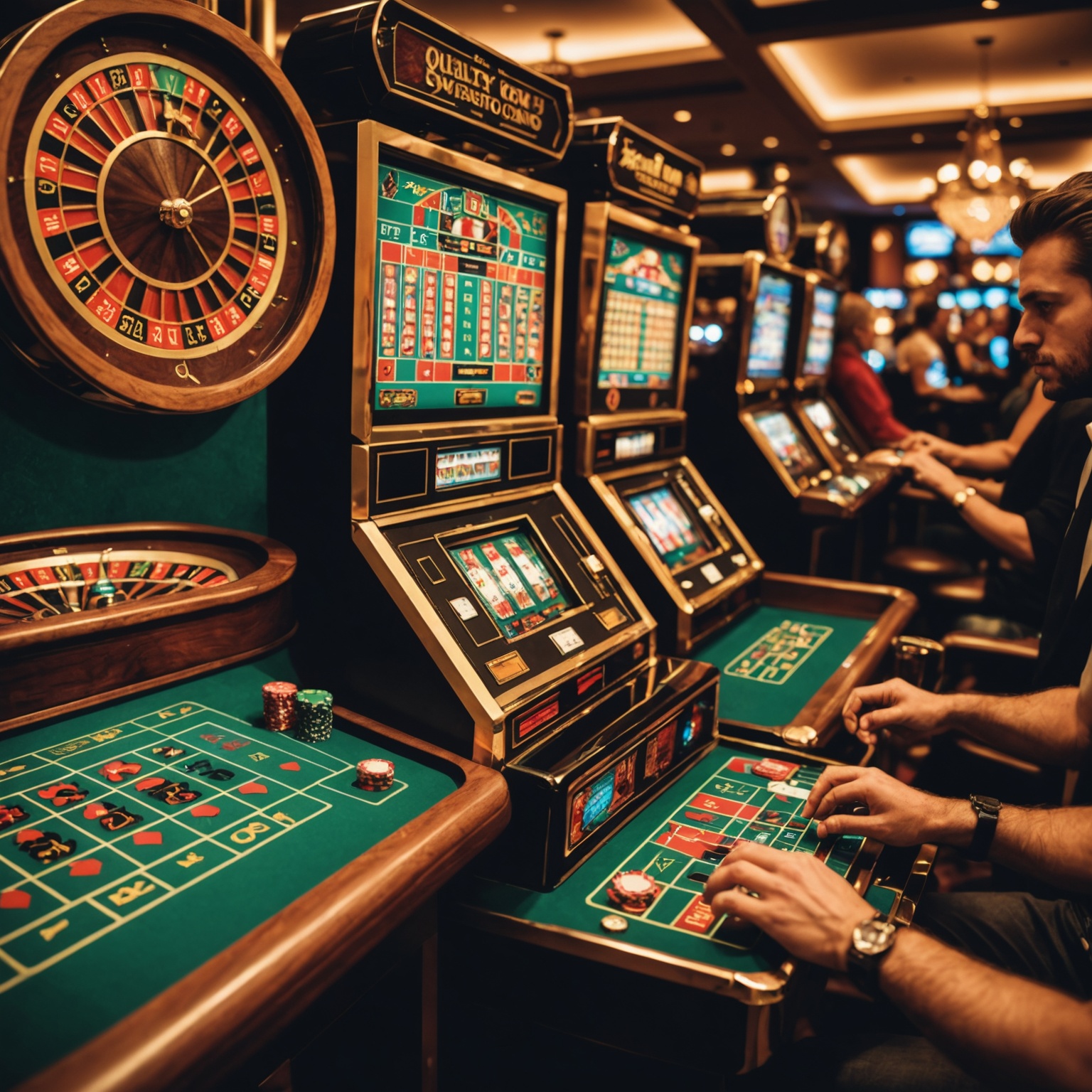
Gambling in casinos has long been a subject of interest and debate, attracting millions of players globally. With a mix of chance, skill, and the excitement of uncertainty, casino games offer an exhilarating escape from everyday life. However, as entertainment becomes ever more available, it calls for a deeper examination of the ethical implications surrounding these games.
At the heart of the discussion lies the issue of whether casinos promote safe gambling or take advantage of at-risk individuals. The allure of potential winnings versus the reality of losses can create a complex situation, and understanding this balance is crucial for both players and operators. As we delve into the ethics of casino gaming, we will explore the responsibilities of casinos, the impact on society, and the steps that can be taken to foster a healthier gaming environment.
The Impact of Casino Gaming on Society
Casino gaming has a notable influence on the community, affecting not only the economy but also interpersonal dynamics and local frameworks. The funds generated from casinos can lead to employment opportunities and boost local economies, as they provide multiple employment opportunities in different sectors including food and beverage, leisure activities, and retail. However, while the economic advantages can be significant, communities often grapple with the possible negative impacts that arise from higher gambling activity.
Moreover, the presence of casinos can lead to an rise in gambling addiction, presenting significant challenges for players and families. The excitement of casino games can quickly transform into a compulsive habit, affecting connections with others and leading to financial instability. Many individuals may find it difficult with the loss of control over their gambling behaviors, resulting in a need for community support services and help to address this increasing issue. The social cost of gambling addiction can extend through families and neighborhoods, creating an urgent need for sensible gambling approaches.
In addition to the economic and social ramifications, casino gaming often reflects cultural attitudes towards risk and entertainment. It can encourage a sense of excitement and leisure, attracting tourists and boosting local travel. However, this allure may also conceal the broader implications of gambling as a method of entertainment, raising ethical questions about its promotion and accessibility. As communities weigh the benefits and disadvantages of casino gaming, the need for sensible approaches and regulation becomes increasingly critical in ensuring that the beneficial elements are maximized while minimizing the potential harms.
Ethical Concerns in Betting Practices
The morality of gambling operations often revolve around the risk for dependency and its effects on individuals and families. Gambling can lead to serious financial distress, impacting not only the gamblers but also their families. As individuals become entrapped in the allure of winning, many lose sight of their budget, which can result in catastrophic results such as insolvency. This raises moral questions about the responsibility of casinos in promoting safe gaming practices and providing support for those who may be struggling with gambling addiction.
Another major concern is the promotion of gambling to vulnerable populations. Bj88 Gambling establishments often target low-income people or communities with the promise of fast gains, which can perpetuate cycles of poverty and despair. In this context, the ethics of advertising strategies used by gambling establishments come under examination, as they may take advantage of the desperation of people seeking an escape from financial hardships. This exploitation raises moral questions about the integrity of the gambling industry and its responsibility to protect its most at-risk customers.
Additionally, the effect of casino gaming on the community as a entirety cannot be ignored. While some argue that gambling establishments create jobs and stimulate local economies, others point to the social costs associated with problem gambling, increased criminal rates, and a burden on public services. Balancing economic benefits with the risk for social harm presents a challenging ethical dilemma for lawmakers and casino operators alike. The challenge lies in discovering a ethical approach that takes into account the welfare of people and society while still allowing for the enjoyment of casino gaming.
Regulatory Structure and Responsibilities
The oversight structure pertaining to casino activities is developed to ensure equity, honesty, and gambler security. Different government agencies and gaming commissions establish and enforce regulations that dictate how gambling activities operate, the criteria for game creation, and the processes for processing rewards. These regulations vary by jurisdiction but commonly involve permit requirements for operators and stringent measures to stop deception and fraud.
In also to oversight bodies, gaming businesses bear significant accountability in preserving principled standards within their venues. They must adopt safe gaming practices that support participant security and education, including presenting self-ban options and offering information about the hazards related to betting. Establishments are also obligated for educating staff to identify signs of difficult gambling and understand the correct steps to assist patrons in need.
Furthermore, transparency in gaming operations is crucial for gaining and keeping public confidence. https://bj88a.info/ Operators should offer clear information about the odds of operations, advertising deals, and any connected risks. By promoting an culture of integrity and trust, operators can help reduce the potential negative impact of gaming while enhancing the general gaming experience for all gamblers.